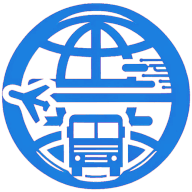The world of logistics is undergoing a significant transformation, thanks to the Internet of Things (IoT). This blog post will delve into the intricacies of integrating IoT in logistics. We will explore the benefits, challenges, and real-world examples of IoT applications in the logistics sector. By the end of this post, you will have a comprehensive understanding of how IoT is revolutionizing logistics and supply chain management.
Understanding IoT and Its Role in Logistics
The Internet of Things, or IoT, refers to a network of interconnected devices that communicate and exchange data with each other. These devices, embedded with sensors, software, and other technologies, can collect and share data without human intervention. In the logistics sector, IoT devices can track goods, monitor warehouse conditions, and optimize routes, among other things.
IoT integration in logistics is not just about connecting devices; it's about harnessing the data these devices generate to improve efficiency, reduce costs, and enhance customer service. For instance, IoT-enabled sensors can monitor the temperature and humidity levels in a warehouse, alerting managers if conditions deviate from the optimal range. This can prevent spoilage of perishable goods, reducing waste and saving costs.
Moreover, IoT devices can track the location and status of goods in real-time, providing valuable insights into the supply chain. This can help companies identify bottlenecks, optimize routes, and improve delivery times. In essence, IoT integration in logistics is about transforming data into actionable insights that drive business value.
Benefits of Integrating IoT in Logistics
The integration of IoT in logistics brings a plethora of benefits. One of the most significant advantages is improved visibility into the supply chain. With IoT devices, companies can track goods from the warehouse to the customer's doorstep. This not only improves efficiency but also enhances customer service by providing accurate delivery estimates.
Another benefit of IoT integration in logistics is predictive maintenance. IoT sensors can monitor the condition of vehicles and equipment, predicting potential failures before they occur. This can reduce downtime, extend the lifespan of equipment, and save costs.
Furthermore, IoT can enhance safety in the logistics sector. For example, IoT devices can monitor driver behavior, alerting managers to unsafe practices such as speeding or harsh braking. This can help prevent accidents, protect assets, and ensure the well-being of employees.
Challenges of Integrating IoT in Logistics
Despite the numerous benefits, integrating IoT in logistics is not without challenges. One of the main hurdles is data security. With the proliferation of IoT devices, the risk of data breaches increases. Companies must implement robust security measures to protect sensitive data.
Another challenge is the lack of standardization in IoT technology. With a myriad of devices and platforms available, interoperability can be a significant issue. Companies must ensure that their IoT devices can communicate and share data seamlessly.
Moreover, the integration of IoT in logistics requires significant investment in infrastructure and skills. Companies must have the necessary hardware, software, and talent to harness the power of IoT. This can be a daunting task, especially for small and medium-sized enterprises (SMEs).
Real-World Examples of IoT in Logistics
Many companies are already reaping the benefits of IoT integration in logistics. For instance, DHL, a leading logistics company, uses IoT devices to track and monitor goods in real-time. This has improved efficiency, reduced costs, and enhanced customer service.
Another example is Maersk, a global shipping company, which uses IoT sensors to monitor the condition of its refrigerated containers. This ensures that perishable goods are transported under optimal conditions, reducing spoilage and waste.
Furthermore, UPS, a package delivery company, uses IoT devices to optimize routes and reduce fuel consumption. This has not only saved costs but also reduced the company's carbon footprint.
The Future of IoT in Logistics
The future of IoT in logistics looks promising. With advancements in technology, the scope of IoT applications in logistics is set to expand. For instance, with the advent of 5G, the speed and capacity of data transmission will increase, enabling real-time tracking and monitoring of goods.
Moreover, the integration of IoT with other technologies such as artificial intelligence (AI) and blockchain can further enhance the efficiency and security of logistics operations. For example, AI can analyze data from IoT devices to predict demand and optimize inventory management. On the other hand, blockchain can ensure the integrity and security of data, preventing tampering and fraud.
In essence, the future of IoT in logistics is about harnessing the power of data to drive efficiency, reduce costs, and enhance customer service. Companies that embrace IoT will be well-positioned to thrive in the digital age.
Steps to Integrate IoT in Logistics
Integrating IoT in logistics requires a strategic approach. Companies must first identify their needs and objectives. This could be improving visibility into the supply chain, reducing costs, or enhancing customer service.
Next, companies must choose the right IoT devices and platforms. This requires a thorough evaluation of the available options, considering factors such as functionality, interoperability, and security.
Once the devices are in place, companies must collect and analyze data to derive actionable insights. This requires investment in data analytics tools and skills.
Finally, companies must continuously monitor and update their IoT systems to ensure optimal performance. This includes regular maintenance of devices, updating software, and training staff.
Embracing IoT: A Game-Changer for Logistics
The integration of IoT in logistics is more than a trend; it's a game-changer. By providing real-time visibility into the supply chain, improving efficiency, and enhancing customer service, IoT is revolutionizing the logistics sector. While challenges exist, the benefits far outweigh the hurdles. Companies that embrace IoT will be well-positioned to thrive in the digital age. The future of logistics is here, and it's powered by IoT.

